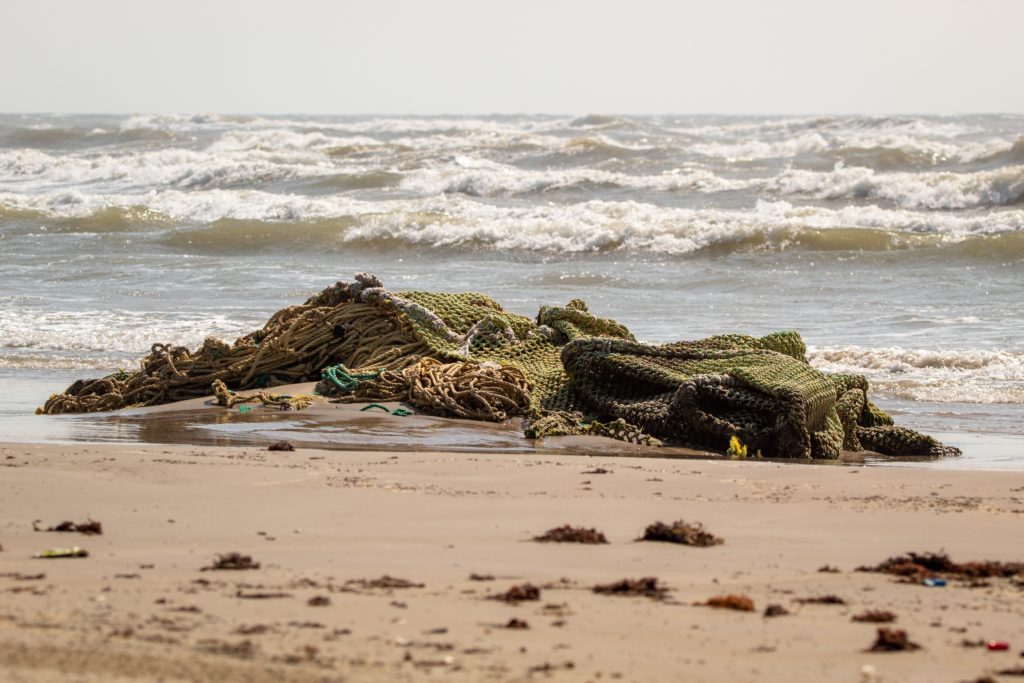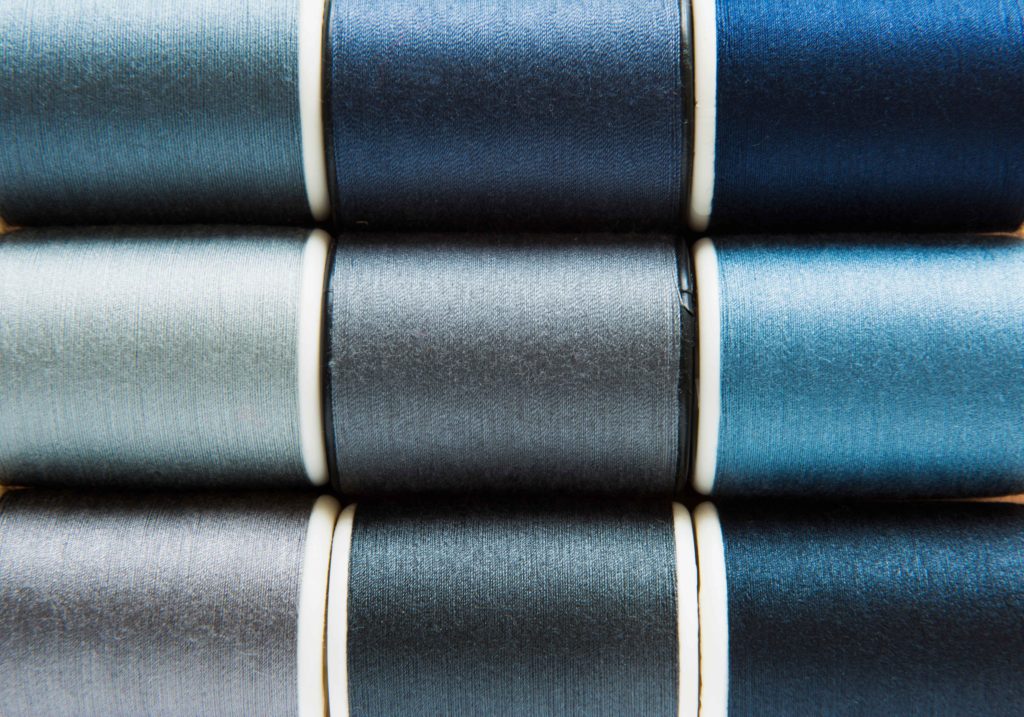ECONYL: regenerated and regenerable nylon
Nylon was the world’s first synthetic fiber. It was born from a need: to have an alternative to Chinese silk, very expensive and dependent on export. In 1940, nylon stockings made their debut, strong synthetic fiber, elastic and thin, with very low production cost, they changed the fashion industry.
The problem of synthetic fibers
About 8 billion barrels of oil are used to produce synthetic materials – such as nylon and polyester – every year. These products also take centuries to decompose. For example, to produce a simple cotton T-shirt, up to 2700 liters of water are absorbed. These numbers, applied to the entire fashion sector, result in pollution that is equivalent to almost 10% of global emissions. This means that the fashion sector is the second most polluting sector in the world, preceded only by oil. For example, according to the Textile Exchange, 5.4 million meters of polyamide were produced in 2018. Polyamide is a very difficult material to recycle, compared, for example, to polyester.
As a study by the Ellen Macarthur Foundation also shows, if we do not act quickly for a change in this sector, we will reach, by 2050, an emission of 26% of the world’s CO2.
Aquafil and regenerated nylon
The most logical step, instead of continuing to take raw materials from the planet, is to reuse what is already present, waste, giving second life to the latter and thus creating a truly circular and regenerating system.
Aquafil is a world leader in the production of nylon. It is an Italian chemical company, based in Arco, Trentino. As early as 2007 he worked to find an alternative to nylon as we know it. Thus, was born, in 2011, Econyl, a wire 100% regenerated and regenerable. It is a material that recovers textile waste pre and post consumption and especially reuses fishing nets in disuse, found in the oceans and on the beaches.
Fishing nets, in fact, are a huge source of nylon, but also of pollution, considering that, in a report by Greenpeace shows that over 640 thousand tons of plastic present in the oceans are only of fishing material – out of a total of 8 million tons per year. Aquafil then started from here to create a collection program, which also provides partnership with various companies, helping to recover not only fishing nets, but also other materials, for then producing regenerated nylon.
“Econyl is an environmentally friendly product because it takes nothing from the environment.
Through chemical and mechanical processes, we are able to recover and regenerate the nylon present in some types of waste, such as fishing nets, carpets, and other waste materials, and to make it ready for new and almost endless uses.”
– Giulio Bonazzi, CEO of Aquafil

The regeneration processes
Thanks to the support and collaboration with companies, the first step of the regeneration process is to recover and clean nylon waste, accumulated in landfills and oceans around the world. Subsequently, the recovered material is regenerated through specific chemical and mechanical processes. In this way, an Econyl yarn is obtained for the clothing, carpet and textile flooring industry, thus giving life to completely new products. Thanks to this closed-circuit process, the recovered nylon can be recycled endlessly, without ever losing its qualities. A true example of a circular economy.

Results achieved
The oceans provide 70% of the oxygen we breathe, while blocking 30% of the world’s carbon emissions. They are the lungs of the planet and must be protected.
Thanks to the Aquafil project, every 10,000 tons of crude Econyl can be avoided by 70,000 barrels of crude oil, avoiding 65,100 tons of CO2 emissions. This reduces the impact of nylon on global warming by up to 90%.
An important result is that Aquafil’s sustainability report was selected among the top 40 according to the 2019 Consumerlab Future Respect Index. This very much underlines the importance of transparency and respect for the environment.
Many important brands are also mobilizing for change. Brands like Stella Mc Cartney – who announced that starting from 2021 she will only use regenerated nylon, relying precisely on Econyl – progressively abandoning the production methods and therefore pollution followed so far. The same thing will be done by Prada, which, from the very beginning, based its historic brand on nylon products and which is now implementing a major change in the luxury fashion sector.
As Giulio Bonazzi, CEO of Aquafil, says, “Until we admit our mistakes, we will never change“. In fact, the first step is to be aware of having to change and improve, to reduce the damage created so far and not create new ones.
